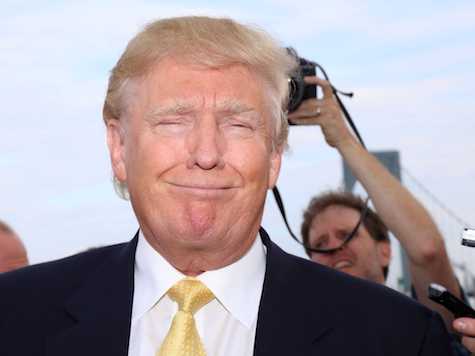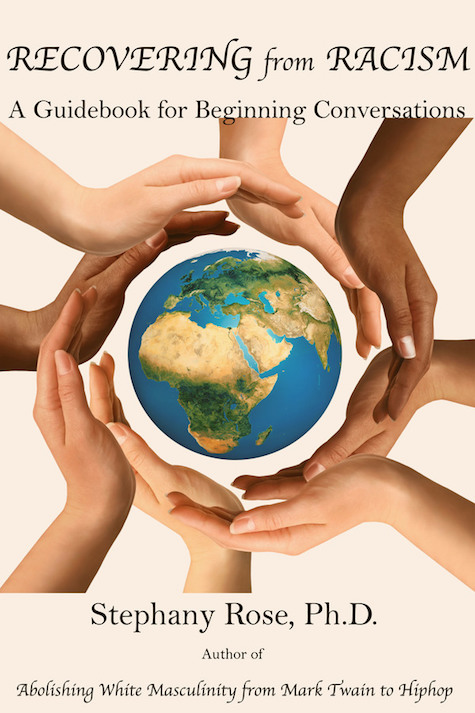
By Michael Angelo Tumbarello, LMSW aka Baje One
I write this in response to a Letter to the Editor of the New York Times, submitted by Allen Frances and published in that newspaper on February 14th. In that letter, Mr. Frances said of Donald Trump: “He may be a world-class narcissist, but this doesn’t make him mentally ill, because he does not suffer from the distress and impairment required to diagnose mental disorder.” Granted, according to the DSM Trump does not meet the required criteria for Narcissistic Personality Disorder (NPD), and who could be more qualified than Allen Frances, the man who literally wrote the criteria, to make that determination? However, this fact ought not put the kibosh on public discussion of Trump’s mental health, since the psychological well-being (or lack thereof) of the man who holds the nuclear codes remains a crucial matter. Instead of ending the discussion, the fact that Trump, a “world-class narcissist” does not meet diagnostic criteria for NPD should motivate those of us in the field to examine the failure of current diagnostic tools to account for socio-cultural influences on the varying manifestations of mental illness.
It is an accepted truth within the mental health profession that mental illness is expressed differently by different groups of people in different places and at different times. At times gender plays a factor: Depressed men are more likely to exhibit symptoms of anger and irritability than depressed women. It would be difficult to argue that this difference is not owed in large part to differences in the ways in which men and women are socialized, wherein women are often taught not to express anger, while men are taught that aggression is the only safe, “masculine” conduit with which to express their emotions.

At other times, culture plays a factor in the expression of mental illness: the American Psychiatric Association recognizes disorders which are “culture-bound”, meaning they only exist within a specific cultural setting. For example, the APA recognizes that in Latin America, and in Latino communities there is a disorder known as an ‘ataque de nervios’, which does not have an exact equivalent to any specific disorder described in the DSM.
And of course at all times, the cultural perspective of the assessing clinician plays a major role in determining diagnosis. Despite the fact that many (if not most) clinicians would rather avoid this particular discussion, it remains true that diagnosis is, at least in part, in the eye of the beholder. We can find evidence to support this idea when we look at race-based disparities in the diagnosis of Conduct Disorder, wherein African American children are much more likely to receive this diagnosis while their white counterparts tend to get diagnosed with ADHD when exhibiting similar sets of behaviors. Is it possible that this disparity correlates with disparities in racial representation within the mental health profession? But of course.
If we already grant recognition to social and cultural factors that contribute to the varying expressions of mental illness, is it really a leap to consider that Trump’s mental illness might also be “culture-bound”, and that the reason why he does not experience “distress” and “impairment” with regard to his narcissism is simply a reflection of the extreme degree of privilege which he experiences? As a rich, white, straight, cisgendered, able-bodied, educated, English-speaking American citizen, Trump experiences every possible degree of privilege in American society. Perhaps he isn’t just privileged, but sick with privilege. After all, he carries himself publicly as if the rules do not apply to him, and given the privilege he experiences he’s absolutely right to make that assumption. At a rally in Iowa in Janurary of 2016, Trump famously boasted: “I could stand in the middle of 5th Avenue and shoot somebody and I wouldn’t lose voters.” I don’t believe that this was hyperbole; I believe that he truly meant what he said. Is a person capable of making such a statement not sick and in need of treatment? Perhaps “Affluenza” really is a thing; perhaps possessing extreme degrees of privilege can be a form of sickness.

In his Letter to the Editor, Allen Frances said: “Mr. Trump causes severe distress rather than experiencing it and has been richly rewarded, rather than punished, for his grandiosity, self-absorption and lack of empathy.” It’s hard to argue with this statement (even though narcissists typically DO cause quite a bit of distress, some of it severe, for their partners and family members), and yet Frances’s argument ought to raise questions about the highly subjective nature of the diagnostic criteria for NPD. After all, who’s to say that Trump does not experience severe distress? And who’s to say what severe distress looks like for someone as wildly powerful and privileged as Trump? If the time stamps on his tweets are accurate, and rumors leaking from the Trump administration are true, then perhaps severe distress looks like the most powerful man in the world wandering the halls of a tower built in his name (in a bathrobe) while obsessively absorbing news coverage of his own words and actions, and labeling as “fake” any such news which is critical of those words and actions. Again, if these are not diagnosable symptoms of sickness and distress, then perhaps we ought to just admit that the diagnostic criteria itself has a major blind spot with regard to power and privilege.
If we already recognize that social and cultural factors play a role in the diagnosis of mental illness, and if we recognize that diagnosis is, at least in part, in the eye of the beholder, then why not add ‘degree of privilege’ to the list of factors that impact and shape the varying manifestations of mental illness? If Frances can call Trump “a world-class narcissist”, and also argue, within the same article, that Trump does not fit the criteria, then perhaps those of us in the field who are bilingual in DSM as well as social justice ought to be asking just how we can account for this disconnect. Perhaps those of us who have the power to diagnose are sick with our own privilege. Perhaps Western institutions of mental health carry the same forms of sickness carried by our other institutions – education, law enforcement, criminal justice etc. – which do a miraculously efficient job at reproducing structural inequality from generation to generation. Perhaps looking at privilege using a medical model would be useful. Perhaps we could develop treatments to help people sick with racism and other isms to recover from their sickness.

And yet we all know that this is not the way the world works, not yet at least. “Affluenza” is simply an imaginative way to protect rich kids from the consequences of their own shitty decisions. And the powerful and the privileged who are for the most part, ironically, the most psychologically fragile among us, will continue to be reflexively protected from the scrutiny and stigma involved with actual mental health diagnosis. The DSM’s failure to account for Trump’s particular experience/expression of narcissism adds the American Psychiatric Association to a growing list of individuals and institutions who are in passive collusion with the normalization of Trump and his mental illness. As I type this, there are already miniature versions of Trump cropping up at all levels of American politics. Until we identify “grandiosity, self-absorption and lack of empathy” across the board as antisocial expressions of mental illness, then people like Trump will continue to get power, not treatment. We ignore this reality at our own peril.
Michael Angelo Tumbarello, LMFSW (aka Baje One) is an armchair cultural critic and a real-life cultural contributor. He is a writer, rapper, indie record label owner, and social worker, working on the front lines of social justice for youth and adults struggling with homelessness, mental health issues, and HIV. He was born and raised in Brooklyn, NY, where he still lives.









